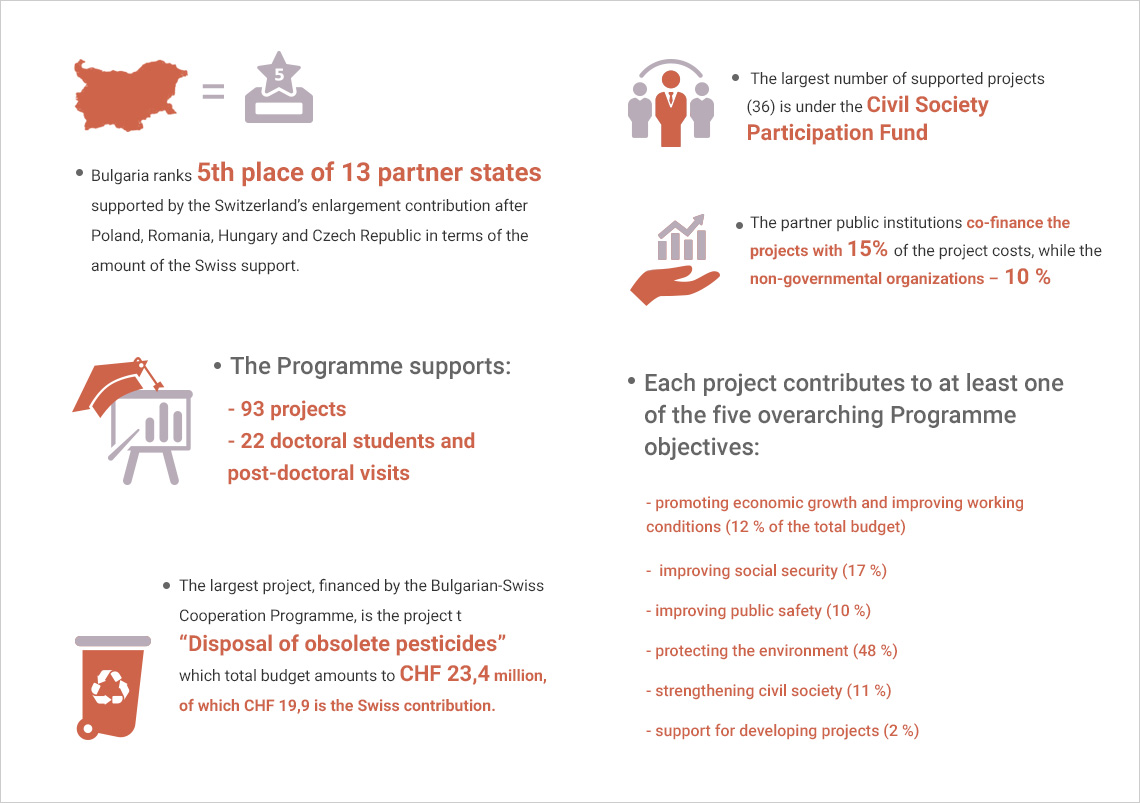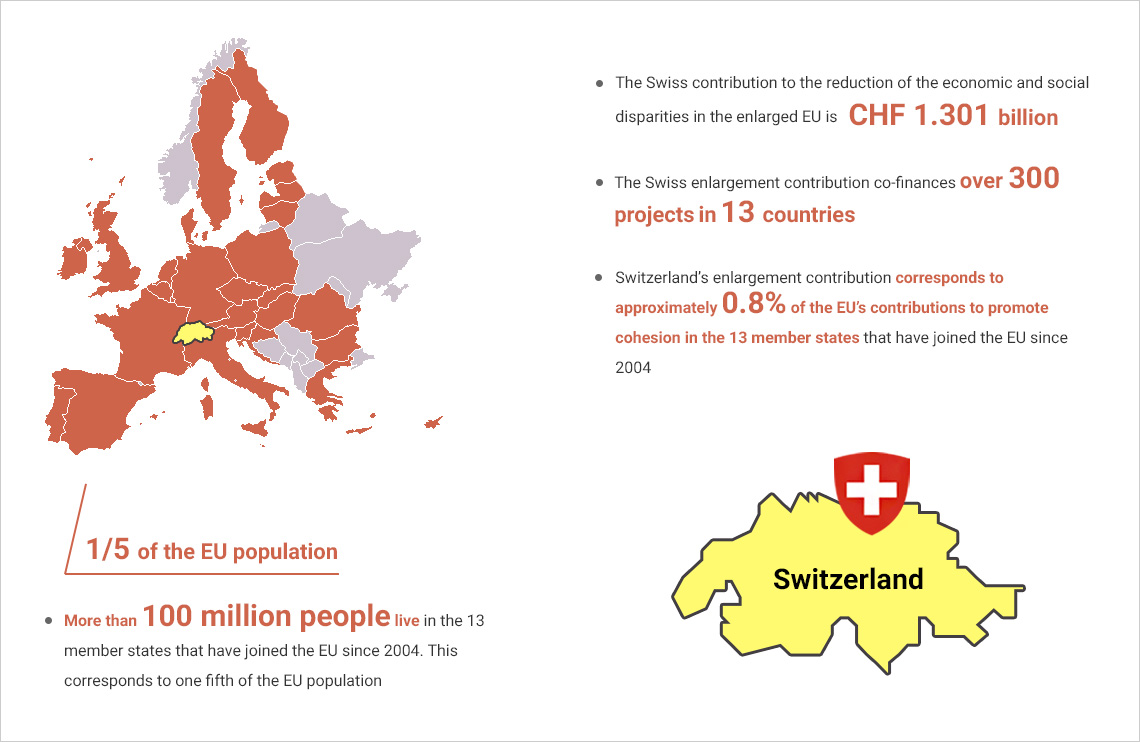BULGARIAN-SWISS COOPERATION PROGRAMME
The Bulgarian-Swiss Cooperation Programme amounts to CHF 76 million committed in the period 2009 – 2014, as agreed in the Bilateral Framework Agreement signed between Bulgaria and Switzerland. The Programme aims at reducing economic and social disparities in the enlarged European Union, as well as in weak periphery regions in Bulgaria. All projects will be completed by the end of 2019.
Switzerland is providing support in areas where Bulgaria has claimed great needs for catching up in its development, and in which Switzerland can offer know-how and expertise. The areas cover topics such as security and justice; support to the civil society; integrating minorities and vulnerable groups; environment and infrastructure; promotion of the private sector; research and education as well as bilateral partnerships.

The Swiss support is organized in 7 funds and 4 projects:
Thematic Fund Security supports Bulgarian institutions in enhancing public safety and fight against corruption and organized crime.
Thematic Fund Research is focused on the bilateral scientific exchange and know-how transfer.
Thematic Fund Scholarship supports research visits of Bulgarian doctoral s and post-doctoral researchers at Swiss institutes.
Thematic Fund Partnership promotes the sharing of experiences between Bulgarian institutions and non-governmental organizations and their Swiss partners.
Thematic Fund Civil society participation is geared to promote the civil society's participation in the development of the country.
Thematic Fund Promotion of social inclusion of Roma and other vulnerable groups – Programme ZOV (Health and education for all) targets mainly Roma children at pre-school and early school age with the aim to better socialize, educate and integrate them thus to expand their future job perspectives. The Home care project sets up a system of home based medical and social cares, which helps to improve the quality of life of elderly people with chronic illnesses or permanent disabilities.
Thematic Fund Introduction of dual track principles in the Bulgarian vocational education system (DOMINO project) contributes to the reform in the vocational education system in Bulgaria by developing modern dual education based on the Bulgarian traditions and the best Swiss and international practices.
Project Disposal of obsolete pesticides pursues the collection, repackaging and environmentally sound disposal of obsolete pesticides, stored in warehouses all-over the country.
Project Collection hazardous household waste introduces a sustainable model of separate collection of household hazardous waste, focusing on 22 municipalities. In five of them pilot centres will be constructed for temporary storage of collected hazardous waste.
Project Green public procurement aims at reinforcing framework conditions for green public procurement in Bulgaria.
Project Modernised trams for Sofia will provide 28 renovated Basel trams for Bulgaria’s capital and promote the use of the public transport system in Sofia as a mean to alleviate traffic jams, reduced greenhouse gas emission and improve air quality.
A National Coordination Unit at the Council of Ministers is in charge of the implementation of the Bulgarian-Swiss Cooperation Programme in close collaboration with the Swiss Contribution Office (SCO), part of the Embassy of Switzerland in Sofia.
For more information:
www.swiss-contribution.bg
www.swiss-contribution.ch/bulgaria
Swiss Contribution to the enlarged EU
Through the contribution, Switzerland helps reducing economic and social disparities in the enlarged European Union. Since 2007, Switzerland has committed CHF 1 billion to projects and programmes in the ten states that joined the European Union in May 2004. Bulgaria and Romania, which joined the EU in 2007, are supported with additional CHF 257 million. In December 2014, the Swiss Parliament approved further CHF 45 million for Croatia, which became a member state in 2013.
The distribution of the enlargement contribution among the thirteen partner states is based on a distribution formula established on the basis of population size and per capita income.
Switzerland has concluded bilateral framework agreements with each partner state, which define the project supports after consultation with the partner countries and independently from the EU.
The Swiss Agency for Development and Cooperation (SDC) and the State Secretariat for Economic Affairs (SECO) through the local offices in Warsaw, Riga, Prague, Budapest, Bratislava, Sofia, Bucharest, Ljubljana and Zagreb are in charge of the programmes’ implementation from the Swiss side.
The Swiss contribution to the EU enlargement: in facts and figures



